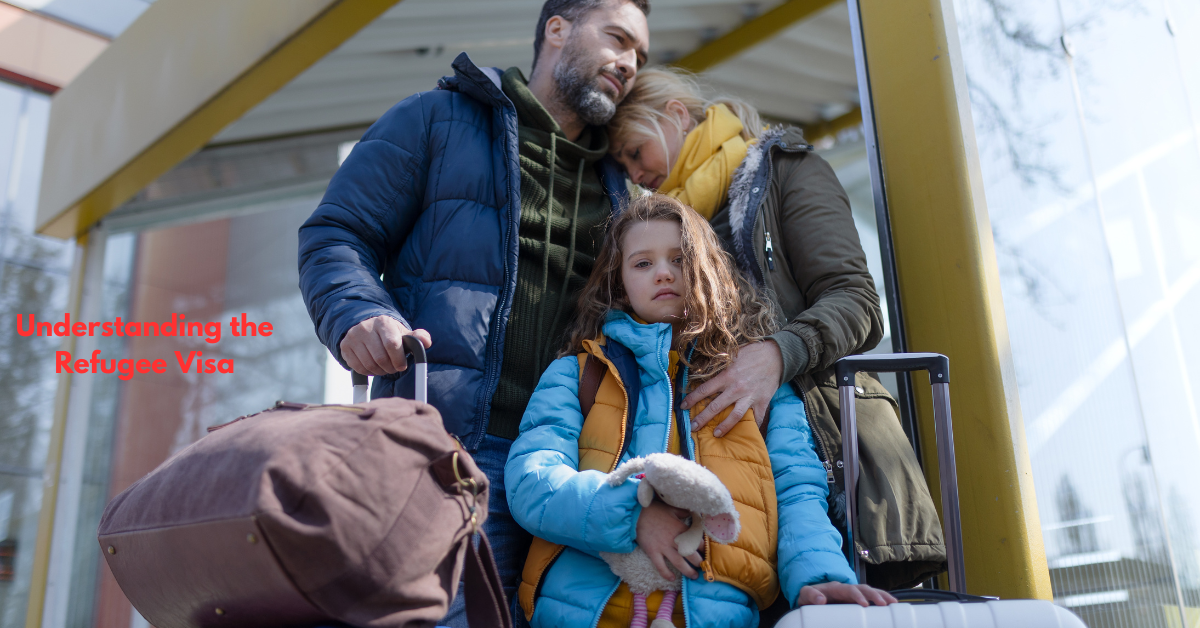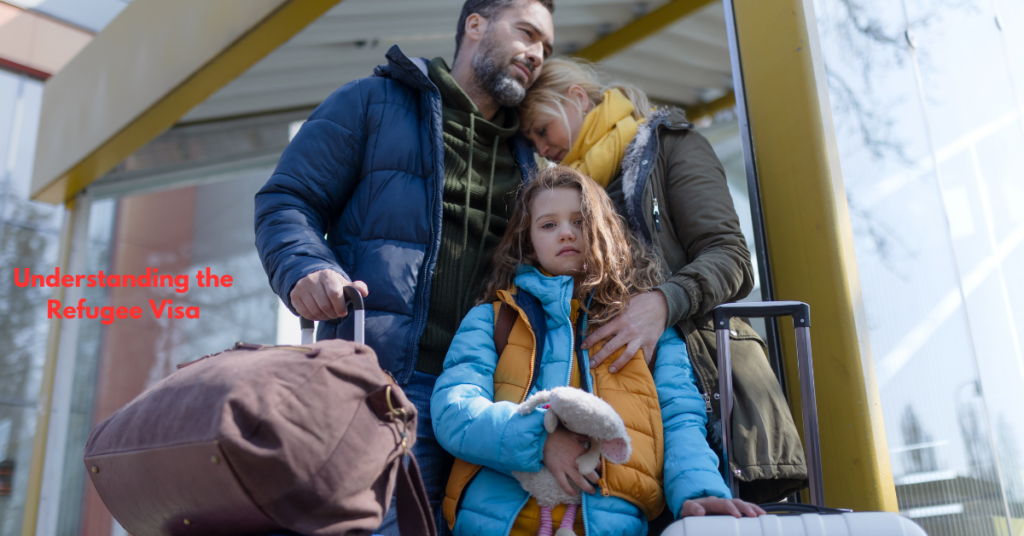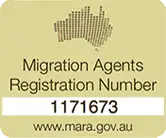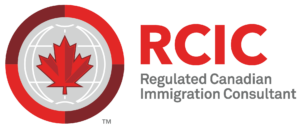
May 8, 2024BY Anindita Banerjee

Here's a guide about the Refugee visa process in Canada
In an increasingly turbulent world, many individuals find themselves displaced from their homes due to conflict, persecution, and other forms of violence. Canada has long been regarded as a beacon of hope for those seeking safety and protection, offering a pathway to refuge through its robust refugee visa process.
In this blog, we’ll explore the ins and outs of the refugee visa process in Canada to aid asylum seekers on their journey to a new beginning.
Understanding Refugee Status:
At the heart of Canada’s refugee protection programs lies the fundamental principle of providing sanctuary to individuals facing persecution and human rights abuses in their home countries. Refugee status is granted to those who can demonstrate a credible fear of persecution based on factors such as race, religion, nationality, political opinion, or membership in a particular social group. This designation serves as the foundation for eligibility to settle in Canada as a refugee.
Eligibility Criteria to Settle in Canada as a Refugee:
To be eligible for resettlement in Canada as a refugee, individuals must meet specific criteria outlined by Canadian immigration authorities.
Canada offers two main refugee protection programs:
The Refugee and Humanitarian Resettlement Program: This program is designed for individuals who require protection from outside Canada. It provides refugees who have been forced to flee their home countries with an opportunity to start anew in Canada. However, individuals cannot directly apply for resettlement in Canada. Instead, the United Nations Refugee Agency (UNHCR) collaborates with private sponsors to identify refugees and facilitate their resettlement in Canada.
The In-Canada Asylum Program: The In-Canada Asylum Program is tailored for individuals making refugee protection claims from within Canada. These individuals, also known as persons in need of protection, face a genuine risk of cruel punishment, torture, or persecution if they return to their home countries. It’s important to note that individuals with serious criminal convictions or who have previously had refugee claims denied by Canada are ineligible to seek asylum in the country
When you apply for refugee status from within Canada, the government assesses your case to determine if it meets the criteria for referral to the Immigration and Refugee Board (IRB). The IRB is tasked with making decisions regarding immigration and refugee matters.
The IRB decides who is a Convention refugee or a person in need of protection.
Convention refugees are outside their home country or the country they normally live in. They’re not able to return because of a well-founded fear of persecution based on
- race
- religion
- political opinion
- nationality
- being part of a social group, such as women or people of a particular sexual orientation
A person in need of protection is a person in Canada who can’t return to their home country safely. This is because, if they return, they may face
- danger of torture
- risk to their life
- risk of cruel and unusual treatment or punishment
Experience you can trust,
service you can count on.
- Honest, Ethical & Reliable
- Proven track record with over 99% success rate
- Five-star Google and Facebook review rating
Who is not eligible?
The IRB is an independent tribunal that makes decisions on immigration and refugee matters.
Your refugee claim may not be eligible to be referred to the IRB if you
- are recognized as a Convention refugee by another country that you can return to
- were granted protected person status in Canada
- arrived via the Canada–United States border
- have made a refugee claim in another country, as confirmed through information-sharing
- are not admissible to Canada on security grounds or because of criminal activity or human rights violations
- made a previous refugee claim that was not found eligible
- made a previous refugee claim that was rejected by the IRB
- abandoned or withdrew a previous refugee claim
Coming to Canada as a refugee: the process
- Obtain a Referral for Resettlement in Canada from UNHCR:
To begin the process of resettlement in Canada, you must first register with a United Nations High Commissioner for Refugees (UNHCR) office in your country of residence. After a thorough assessment of your claim, UNHCR will refer you to a resettlement country, taking into account factors such as family connections, eligibility criteria, processing times in various countries, language proficiency, cultural considerations, and, if feasible, your preferences. - Complete the Application Package: Upon receiving a referral for resettlement in Canada, you must complete the application package to apply as either a Convention refugee or a humanitarian-protected person abroad. This comprehensive package includes various forms and documents that must be accurately filled out and submitted.
- Submit Your Application: For privately sponsored refugees, your sponsor will handle the submission of your application to the Resettlement Operations Centre in Ottawa (ROC-O) on your behalf. Government-assisted refugees will receive guidance from the Immigration, Refugees, and Citizenship Canada (IRCC) office in their country of residence on how to submit their completed application forms.
- Undergo Medical Tests: You and your family must undergo medical examinations before you depart for Canada. The IRCC or International Organization for Migration (IOM) will contact you to provide further details and instructions regarding this requirement.
- Clear Criminal Background Checks: As part of the resettlement process, you must pass security and criminal background checks before being selected for resettlement in Canada. These checks are conducted to ensure the safety and security of Canadian communities.
It’s essential to follow each step of the resettlement process diligently and accurately to increase the likelihood of a successful outcome. Additionally, seeking guidance from refugee support organizations or legal professionals can provide valuable assistance throughout the application process.
How to make a refugee claim in Canada
You must be in Canada to make your refugee claim. You can make your claim in 1 of 2 ways:
- in person (when you arrive in Canada at a port of entry)
- online (when you’re already in Canada)
When you make your claim, you can request a work permit at the same time.
Get a work permit while waiting for a decision
If you make your claim at a port of entry
You can request to apply for a work permit while you’re with the border services officer. You won’t get your work permit while at the port of entry. If you’re eligible for one, you’ll receive it after you complete your medical exam.
If you submit your refugee claim online
You can request a work permit in your online application. IRCC will only issue you a work permit if
- they decide your claim is eligible to be referred to the IRB and
- you complete your medical exam
If you need any assistance or have any questions, you can contact our Immigration Consultant in Brampton at +1 289 298 1000 or Book Free Consultation on our website canozvisas.com
Do you want
to Study or Immigrate to Canada or Australia?
We are Canoz Visa Services and our team is committed to provide the highest standards of client service in a friendly environment.

Bakhash Deep Singh
Registered Australian
Migration Agent
MARN: 1171673
He provides comprehensive and personalized services to his clients. He has handled many complex cases for Australian Immigration for his clients and has a very high success rate. He is known for his analytical and strategic approach. He is Originally from India, he has a good command over English, Hindi and Punjabi language.
Do you want
to Study or Immigrate to
Canada or Australia?
We are Canoz Visa Services and our team is committed to provide the highest standards of client service in a friendly environment.







